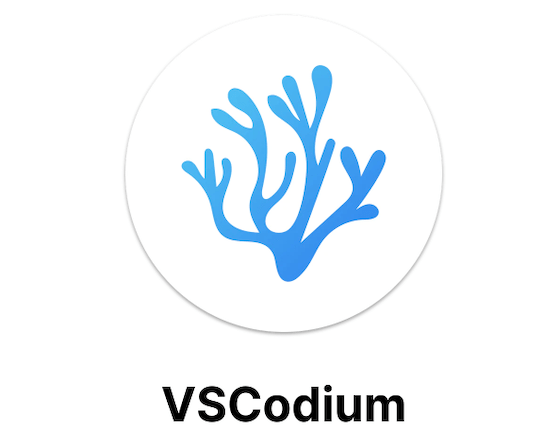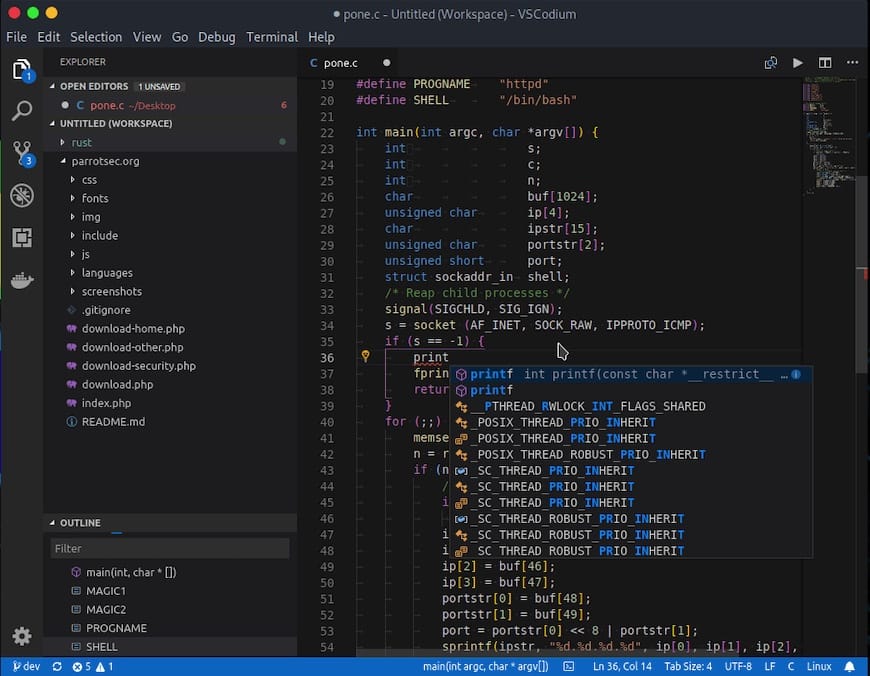How To Install VSCodium on Fedora 40

In this tutorial, we will show you how to install VSCodium on Fedora 40. VSCodium is an open-source alternative to Microsoft’s Visual Studio Code (VS Code) that offers a privacy-focused development environment without any telemetry. As an open-source project, VSCodium is transparent, secure, and supported by a thriving community of developers. If you value open-source principles and want to use a powerful, feature-rich code editor on your Fedora 40 system, VSCodium is an excellent choice.
This article assumes you have at least basic knowledge of Linux, know how to use the shell, and most importantly, you host your site on your own VPS. The installation is quite simple and assumes you are running in the root account, if not you may need to add ‘sudo‘ to the commands to get root privileges. I will show you the step-by-step installation of the VSCodium on Fedora 40.
Prerequisites
Before we dive into the installation process, ensure that you have the following prerequisites in place:
- A server running one of the following operating systems: Fedora 40.
- It’s recommended that you use a fresh OS install to prevent any potential issues.
- You will need access to the terminal to execute commands. Fedora provides the Terminal application for this purpose. It can be found in your Applications menu.
- A stable internet connection to download the necessary packages.
- A non-root sudo user or access to the root user. We recommend acting as a non-root sudo user, however, as you can harm your system if you’re not careful when acting as the root.
Install VSCodium on Fedora 40
Step 1. Update the System.
Before installing VSCodium, it’s crucial to update your Fedora 40 system to ensure you have the latest packages and security patches. Open the terminal and run the following command:
sudo dnf clean all sudo dnf update
This command will fetch and install any available updates for your Fedora 40 system. The process may take a few minutes, depending on the number of updates available and your internet connection speed.
Step 2. Installing VSCodium on Fedora 40.
To install VSCodium on Fedora 40, you need to add the official VSCodium repository to your system. This repository contains the necessary packages and dependencies for VSCodium. Execute the following command in the terminal to add the repository:
printf "[gitlab.com_paulcarroty_vscodium_repo]\nname=download.vscodium.com\nbaseurl=https://download.vscodium.com/rpms/\nenabled=1\ngpgcheck=1\nrepo_gpgcheck=1\ngpgkey=https://gitlab.com/paulcarroty/vscodium-deb-rpm-repo/-/raw/master/pub.gpg\nmetadata_expire=1h" | sudo tee /etc/yum.repos.d/vscodium.repo
Next, import the repository’s GPG key to ensure the authenticity of the packages:
sudo rpmkeys --import https://gitlab.com/paulcarroty/vscodium-deb-rpm-repo/-/raw/master/pub.gpg
These commands add the VSCodium repository to your Fedora 40 system and import the necessary GPG key for package verification.
With the repository added, you can now install VSCodium using the dnf package manager. Run the following command in the terminal:
sudo dnf install codium
This command will download and install VSCodium along with its dependencies. Confirm the installation by typing “y” when prompted and wait for the process to complete.
After the installation is finished, verify that VSCodium is installed correctly by checking its version. Execute the following command in the terminal:
codium --version
If the installation was successful, you should see the version number of VSCodium displayed in the terminal output.
Step 3. Launch VSCodium on Fedora.
You can now launch VSCodium using either the terminal or the graphical user interface (GUI). To start VSCodium from the terminal, simply type:
codium
Alternatively, you can find VSCodium in your applications menu. Click on the “Applications” button, search for “VSCodium,” and click on the icon to launch the editor.

Step 4. Troubleshooting Common Issues.
If you encounter any issues during the installation process or while using VSCodium, consider the following troubleshooting tips:
- Repository Not Found: If you receive an error message indicating that the VSCodium repository cannot be found, double-check the repository URL and GPG key in the commands provided in Step 2. Ensure that you have entered them correctly and try again.
- Installation Issues: If you face problems during the installation, such as missing dependencies or conflicts, make sure your Fedora 40 system is up to date by running
sudo dnf updatebefore attempting the installation again. Also, check your internet connection to ensure that the packages can be downloaded successfully. - Launch Problems: If VSCodium fails to launch after installation, verify that the installation path is correctly set in your system’s PATH variable. You can also try running VSCodium with sudo privileges (
sudo codium) to see if it resolves the issue. If the problem persists, try reinstalling VSCodium or seeking support from the VSCodium community forums.
Congratulations! You have successfully installed VSCodium. Thanks for using this tutorial for installing the VSCodium on Fedora 40 system. For additional help or useful information, we recommend you check the VSCodium website.